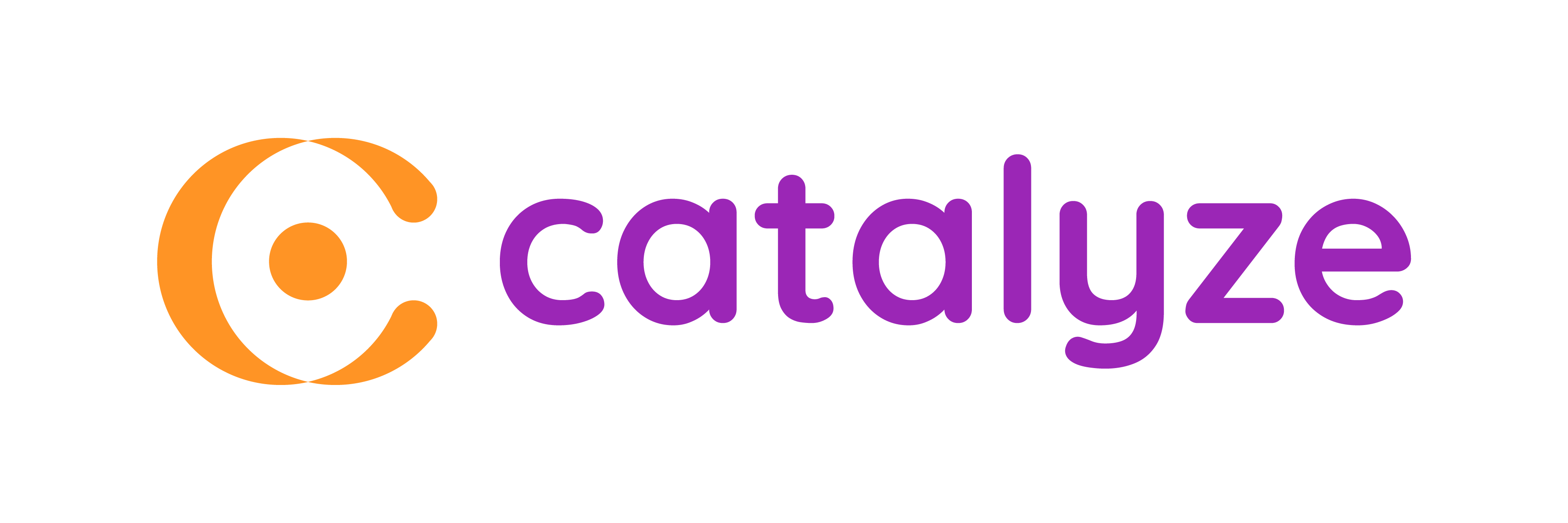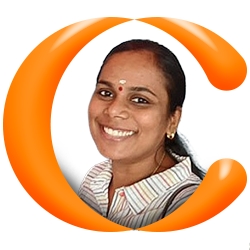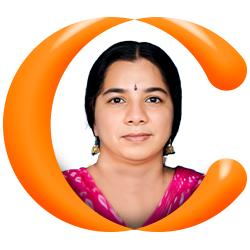
UK Curriculum
UK Qualification GCSE@Catalyze
Catalyze's unique LIVE One-On-One - General Certificate of Secondary Education (GCSE)

General Certificate of Secondary Education (GCSE)
The General Certificate of Secondary Education (GCSE) is a key qualification in the UK education system, typically taken by students at the end of their compulsory education, usually at the age of 16. GCSEs are offered by various examination boards, including AQA, OCR, Edexcel, and WJEC.
Here are some key features of GCSE qualifications in the UK:
- Subject Coverage: GCSE qualifications cover a wide range of subjects, including English, mathematics, sciences, humanities (e.g., history, geography), languages (e.g., French, Spanish), arts (e.g., art and design, music), and vocational subjects (e.g., business studies, engineering).
- Curriculum Content: The content of GCSE courses is determined by the respective examination boards and is aligned with national curriculum guidelines. Each subject has its own syllabus, which outlines the topics to be covered and the skills to be developed. GCSEs aim to provide students with a broad and balanced education across various disciplines.
- Assessment: GCSEs are typically assessed through a combination of written examinations, coursework, practical assessments, and controlled assessments, depending on the subject. The assessment methods vary between subjects and examination boards, but they are designed to assess students' knowledge, understanding, and skills effectively.
- Grading System: GCSEs are graded on a scale from 9 to 1, with 9 being the highest grade and 1 being the lowest passing grade. Grade 9 represents the highest level of achievement, while grades 1 to 3 are equivalent to the former grades D, E, F, and G. Grades 4 and 5 are equivalent to the former grade C, which is considered a standard pass, while grade 6 and above are considered strong passes.
- Progression: GCSEs are an important milestone in a student's education and serve as a foundation for further study or employment. After completing their GCSEs, students may choose to continue their education by pursuing A-levels, vocational qualifications, or apprenticeships, or they may enter the workforce directly.
Overall, GCSE qualifications play a crucial role in the UK education system, providing students with essential knowledge, skills, and qualifications to help them succeed in their future endeavors.
AQA - Upper Secondary GCSE
(GCSE - General Certificate of Secondary Education)
The GCSE is typically taken by students in the UK at the end of Key Stage 4 (around age 16).
AQA offers a wide range of GCSE subjects, including English Language, Mathematics, Sciences (Biology, Chemistry, Physics), Humanities (History, Geography), Languages, Arts, and Technology subjects.
The GCSE curriculum provides a broad and balanced education, covering essential knowledge and skills across different subject areas.
Options and Electives:
- Upper secondary students following the AQA curriculum have the flexibility to choose elective subjects based on their interests and career aspirations.
- AQA offers a wide range of elective subjects, allowing students to tailor their education to suit their individual needs and goals.
Practical Learning and Assessment:
- The AQA curriculum incorporates practical learning experiences and assessments, particularly in subjects such as Sciences and Technology.
- Practical assessments enable students to apply theoretical knowledge, develop laboratory skills, and conduct experiments, enhancing their understanding of scientific concepts.
Assessment Methods:
- AQA assessments include a combination of written examinations, coursework, and practical assessments, depending on the subject and qualification level.
- Assessment formats may vary across subjects, with a focus on evaluating students' knowledge, understanding, and skills in each respective discipline.
- Overall, the AQA curriculum for upper secondary education provides students with a comprehensive and rigorous educational experience, equipping them with the knowledge, skills, and qualifications necessary for further study, employment, and lifelong learning. While originally designed for the UK education system, the AQA curriculum can be adapted and implemented in other countries to meet the needs of upper secondary students.
- In addition to foundational knowledge, students develop critical thinking, problem-solving, and communication skills through these subjects.
AQA GCSE Subjects offered @Catalyze :
Catalyze | A Pearson Edexcel Approved Centre (#95580)
Pearson Edexcel GCSE
Edexcel Upper Secondary (GCSE)
Edexcel offers a comprehensive range of General Certificate of Secondary Education (GCSE) qualifications for upper secondary students. Here's an overview of the Edexcel Upper Secondary GCSE curriculum:
Core Subjects:
- Edexcel offers GCSE qualifications in core subjects such as English Language, Mathematics, and Sciences (Biology, Chemistry, Physics).
- These core subjects provide essential knowledge and skills that are fundamental for further study and employment opportunities.
Humanities and Social Sciences:
- Edexcel provides GCSE qualifications in Humanities subjects such as History, Geography, and Religious Studies.
- These subjects enable students to explore historical events, geographical processes, and ethical and philosophical issues, fostering critical thinking and analytical skills.
Languages:
- GCSE qualifications are available in Modern Foreign Languages (e.g., French, German, Spanish) and Classical Languages (e.g., Latin, Ancient Greek).
- Language GCSEs develop students' communication skills, cultural understanding, and appreciation of diverse linguistic traditions.
Creative and Performing Arts:
- Edexcel offers GCSE qualifications in Creative and Performing Arts subjects such as Art and Design, Drama, Music, and Dance.
- These subjects provide opportunities for students to express their creativity, develop practical skills, and explore their artistic talents.
Design and Technology:
- GCSE qualifications in Design and Technology subjects, including Design and Technology, Engineering, and Food Preparation and Nutrition, are available.
- These subjects foster innovation, problem-solving, and practical skills, preparing students for careers in design, engineering, and related fields.
Assessment:
- GCSE assessments typically consist of written examinations, coursework, and practical assessments, depending on the subject and qualification.
- Written examinations assess students' knowledge, understanding, and application of key concepts, while coursework and practical assessments allow students to demonstrate their skills and creativity through project work and practical tasks.
Grading:
- Edexcel GCSE qualifications are graded on a scale from 9 to 1, with 9 being the highest grade achievable.
- The grading system is used to indicate students' performance in individual subjects and is important for progression to further study or employment.
Skills Development:
- Edexcel GCSE qualifications aim to develop students' critical thinking, problem-solving, communication, and research skills.
- Through a combination of classroom teaching, independent study, and practical activities, students enhance their academic abilities and prepare for further education or employment.

Pearson Edexcel GCSE Subjects offered @Catalyze :
- Biology (1BI0/1F, 1BI0/2F)
- Biology (1BI0/1H, 1BI0/2H)
- Business (1BS0/01, 1BS0/02)
- Chemistry (1CH0/1F, 1CH0/2F)
- Chemistry (1CH0/1H, 1CH0/2H)
- Combined Science (1SC0/1BF, 1SC0/2BF)
- Combined Science (1SC0/1CF, 1SC0/2CF)
- Combined Science (1SC0/1PF, 1SC0/2PF)
- Combined Science (1SC0/1BH, 1SC0/2BH)
- Combined Science (1SC0/1CH, 1SC0/2CH)
- Combined Science (1SC0/1PH, 1SC0/2PH)
- Computer Science (1CP2/01, 1CP2/02)
- English Language (1EN0/01, 1EN0/02)
- English Language 2.0 (1EN2/01, 1EN2/02)
- English Literature (1ET0/01, 1ET0/02N, 1ET0/02P)
- French (1FR0/IF, 1FR0/2F, 1FR0/3F)
- French (1FR0/IH, 1FR0/2H, 1FR0/3H)
- Geography A (1GA01/01, 1GA01/02, 1GA01/03)
- Geography B (1GB01/01, 1GB01/02, 1GB01/03)
- History (1HI0/10-33)
- History (1HI0/2A -2W)
- History (1HI0/30-33)
- Mathematics (1MA1/1F, 1MA1/2F, 1MA1/3F)
- Mathematics (1MA1/1H, 1MA1/2H, 1MA1/3H)
- Physics (1PH0/1F, 1PH0/2F)
- Physics (1PH0/1H, 1PH0/2H)
- Psychology (1PS0/01, 1PS0/02)
- Statistics (1ST0/1F, 1ST0/2F)
- Statistics (1ST0/1H, 1ST0/2H)
OCR GCSE
OCR Upper Secondary (GCSE)
OCR (Oxford, Cambridge, and RSA Examinations) is one of the main examination boards in the United Kingdom offering General Certificate of Secondary Education (GCSE) qualifications. Here's an overview of the OCR GCSE curriculum for upper secondary students:
Core Subjects:
- OCR offers GCSE qualifications in core subjects such as English Language, Mathematics, Sciences (Biology, Chemistry, Physics), and Modern Foreign Languages (e.g., French, German, Spanish).
- These subjects provide a foundational understanding of key concepts and skills essential for further study and employment.
Humanities and Social Sciences:
- OCR offers GCSE qualifications in Humanities subjects such as History and Geography, providing students with knowledge and understanding of historical events, geographical processes, and global issues.
- Social Sciences subjects such as Sociology and Psychology may also be offered, allowing students to explore human behavior, society, and culture.
Creative and Performing Arts:
- GCSE qualifications in Creative and Performing Arts subjects such as Art and Design, Drama, Music, and Dance are available, enabling students to develop their creativity, expression, and practical skills.
Design and Technology:
- OCR offers GCSE qualifications in Design and Technology subjects, including Design and Technology, Engineering, and Food Preparation and Nutrition, allowing students to develop design, technical, and practical skills.
Assessment:
- GCSE assessments typically consist of written examinations, coursework, and practical assessments, depending on the subject and qualification.
- Written examinations assess students' knowledge, understanding, and application of key concepts, while coursework and practical assessments allow students to demonstrate their skills and creativity through project work and practical tasks.
Grading:
- OCR GCSE qualifications are graded on a scale from 9 to 1, with 9 being the highest grade achievable and 1 being the lowest.
- The grading system is used to indicate students' performance in individual subjects and is important for progression to further study or employment.
Skills Development:
- OCR GCSE qualifications aim to develop students' critical thinking, problem-solving, communication, and research skills.
- Through a combination of classroom teaching, independent study, and practical activities, students enhance their academic abilities and prepare for further education or employment.
Overall, the OCR GCSE curriculum for upper secondary students provides a comprehensive and flexible educational experience, allowing students to pursue their interests, develop their skills, and achieve their academic potential.
OCR Upper secondary GCSE Subjects offered @Catalyze:
GCSE @ catalyze center
For GCSE, we provide
Curious to catalyze your child's academic excellence with our GCSE curriculum?
Feel free to talk with our program counselors, who specialize in offering valuable guidance to foster personalized learning experiences for your child.
We Prioritize Personalized Learning
Our one-on-one sessions are tailored to your child's unique needs and learning style.

Crafted for Excellence
Your child receives dedicated attention from expert tutors, addressing specific challenges and nurturing strengths.

Customized Progress
With personalized sessions, your child can progress at their own pace, fostering a deeper understanding of subjects and a love for learning.

Comprehensive Learning Plans
Individual Learning Plans (ILPs) map out goals, strengths, areas for improvement, and strategies for success.

Continuous Assessment
Our comprehensive academic process enhances performance and boosts confidence through assessments, assignments, and targeted support.

Confidence & Curiosity
During one-on-one sessions, your child can freely express curiosity, ask questions, and engage in meaningful discussions, fostering confidence in their abilities.

Convenient, Safe, and Flexible
Content-focused grid designs, unique social elements, post-sharing function, author exposure, sticky newsletter.
If you'd like to learn more or enroll your child in our personalized education program, please don't hesitate to reach out. Just click here to send us an email, and our team will be happy to assist you!
Catalyze Advantages
How are students assessed at Catalyze?
Students at Catalyze are assigned topic wise and combined topic assessments and assignments, followed by Mock tests.
The students are assessed according to the 4 pillars at Catalyze
1 1
PILLAR 1
Conceptual Understanding
2 2
PILLAR 2
Conceptual Application
3 3
PILLAR 3
Conceptual cross connection
4 4
PILLAR 4
Presentaiton of the answers according to IB standards.
Frequently Asked Questions
Here are top 10 FAQs for the GCSE (General Certificate of Secondary Education) curriculum.
The General Certificate of Secondary Education (GCSE) is an internationally recognized qualification typically taken by students aged 14-16 in the UK and other countries. It covers a wide range of subjects and serves as a foundation for further education or employment.
Catalyze offers a comprehensive range of GCSE subjects, including Mathematics, English Language, English Literature, Sciences (Physics, Chemistry, Biology), Humanities (History, Geography), Languages (French, Spanish, German), and more.
Our tutors are experienced educators with expertise in their respective subjects and Curricula. They are dedicated to providing personalized instruction and support to help students excel in their GCSE exams.
Classes are conducted through live online sessions, allowing students to participate from anywhere with an internet connection. Additionally, recorded lectures and study materials are available for self-paced learning.
The duration of the GCSE program varies depending on the subjects chosen and the student's individual learning pace. Typically, students complete their GCSE qualifications over a period of two years.
GCSE subjects are assessed through a combination of coursework, practical assessments, and written examinations. Grades are awarded based on performance in these assessments, with results ranging from 9 (highest) to 1 (lowest).
There are no specific prerequisites for enrolling in the GCSE program at Catalyze. However, students are expected to have a basic understanding of the subjects they choose to study.
To enroll in our GCSE program, simply fill out the enrollment form on our website or contact our admissions team for assistance. We'll guide you through the enrollment process and help you get started on your academic journey.
Catalyze offers a range of support services, including academic tutoring, exam preparation, study resources, and personalized guidance from our team of educators.
Students have access to progress reports, feedback from tutors, and regular assessments to track their academic progress throughout the duration of the program.
Discover insights from our accomplished program counselors, who specialize in offering valuable guidance to foster personalized learning experiences for your child. Contact us.
Testimonials
See what our GCSE curriculum students' parents says
We are thrilled to share how Catalyze Center revolutionizing education, one learner at a time.
"At Catalyze's unique IIT-JEE bridge program, helped me bridge the Cambridge Curriclum AS and A levels and gave me the confidence to appear for IIT-JEE mains. I was able to learn concepts that were discussed in the CBSE curriculum but were absent in the Cambridge Curriculum.”
Aadith Pillai - Pune - IIT JEE Student
"We have been taking online classes from Catalyze for the past 3 years. Nandita was in the Cambridge curriculum till 10th grade and now has shifted to Karnataka State board PUC for 11th and 12th. Catalyze structured a Unique Program for her to bridge the gap between Cambridge and KSB with a view of a customized IIT-JEE program for her. I must admit that this is brilliant!! IT not only cuts back on all the clutter that the regular programs offerend by FIT-JEE and other institutes but focusses on what the child exactly needs. Nandita has performed extermely well in her first physics exam in the 11th grade. Thanks to Mrs. Mythili's teaching."
Sudha Mahesh, P/O of Nandita Mahesh, Bangalore
Scroll
Take a Free GCSE Demo
We invite you to this transformative journey for your child to become a lifelong learner.
Catalyze Center's unique LIVE One-On-One - A Pearson Edexcel Approved Centre (#95580)

Meet Catalyze's
Cambridge International Curriculum Tutors
We take great pride in our team of experienced tutors, who are dedicated to providing your child with tailored instruction and unwavering support.
With a wealth of knowledge and expertise, our tutors are passionate about nurturing your child's potential and helping them thrive academically and beyond. View All Tutor's Profile
Complete portion coverage
A better understanding of the basics and strengthening of concepts.
Specific topic coverage
Personalized to the student’s pedagogical needs and learning curve.
Online Doubt Clearing facility
Removal of doubts leads to bridging of learning gaps.
Dedicated Tutors
Offers the benefit of the long experience and rich expertise of dedicated online tutors.












